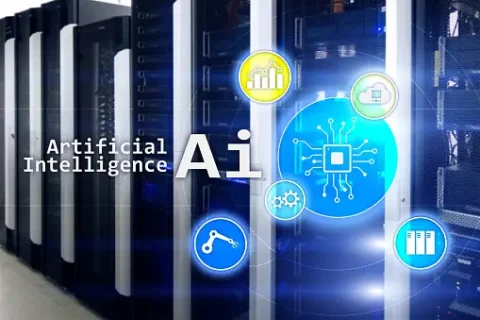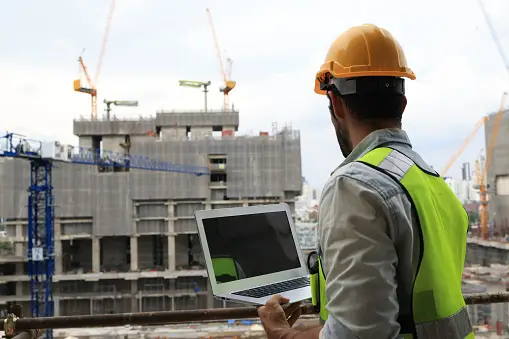Key Takeaways:
- Explore how new technologies like VR/AR, AI, and smart homes are reshaping the home-buying experience.
- Gain insight into how big data and blockchain contribute to more informed and secure real estate transactions.
- Examine the rise of online real estate marketplaces and crowdfunding in providing greater access and opportunities to buyers.
Table of Contents:
- The Role of Smart Homes in Real Estate Attractiveness
- The Rise of Virtual and Augmented Reality Home Tours
- The Impact of Big Data on Home-Buying Decisions
- Artificial Intelligence: A Game-Changer for Home Searches
- Sustainable Living and the Demand for Eco-Friendly Homes
- Crowdfunding and Real Estate: Opportunities for Buyers
The Role of Smart Homes in Real Estate Attractiveness
Smart homes are no longer futuristic concepts but a present-day reality sought after by tech-savvy buyers. Equipped with interconnected devices and systems, a smart home can provide unparalleled convenience, security, and efficiency. As stipulated in https://www.newhomestar.com, features such as remote-controlled thermostats, advanced security cameras, and automated lighting systems attract buyers who value modern conveniences and are willing to invest in homes that provide such technologically advanced living experiences.
From an investment standpoint, properties incorporating smart technologies tend to have a higher market value and appeal. Buyers see them as modern, future-proof investments that align with an increasingly digital world.
The Rise of Virtual and Augmented Reality Home Tours
In today’s market, the practice of scheduling multiple in-person home viewings can be both time-consuming and inconvenient. Virtual Reality (VR) and Augmented Reality (AR) have emerged as revolutionary tools that allow potential buyers to conduct thorough home tours without ever setting foot on the property. This technology transcends geographical barriers and provides a lifelike walk-through experience, ensuring that buyers can get a true sense of the space, scale, and ambiance of a home. By using VR/AR, they can also stage homes virtually, creating fully furnished environments that appeal to buyers’ preferences. This level of customization provides a superior viewing experience, one that can ignite an emotional connection to the property, which is often crucial in the decision-making process.
The Impact of Big Data on Home-Buying Decisions
An informed buyer is an empowered buyer, and big data is playing an instrumental role in delivering actionable insights to consumers. Big data analytics allows for the collection, organization, and analysis of vast quantities of market information, presenting it in a user-friendly manner to prospective buyers. These insights include property value trends, neighborhood crime rates, school district performances, and real estate market forecasts. By equipping buyers with this data, they can make fact-based decisions, assess investment potential, and negotiate with greater confidence. Real estate professionals, harnessing the power of big data, can provide clients with a more comprehensive service, identifying opportunities or risks that may have previously gone unnoticed. Consequently, home buyers can approach the real estate market with a level of knowledge and clarity that was traditionally reserved for industry insiders.
Artificial Intelligence: A Game-Changer for Home Searches
The integration of Artificial Intelligence (AI) into real estate is transforming how buyers find their perfect homes. AI systems utilize sophisticated algorithms to analyze users’ preferences, behaviors, and feedback to suggest listings that align with their specific desires. These intelligent platforms can filter through thousands of listings to identify those that meet the buyer’s criteria, substantially reducing the time and effort traditionally associated with home searches.
Sustainable Living and the Demand for Eco-Friendly Homes
The increasing awareness of environmental challenges has led to a surge in demand for sustainable and eco-friendly homes. Buyers are more conscious than ever of their environmental impact and seek out properties that align with their values. Eco-friendly homes offer myriad benefits, including lower energy consumption, natural resource conservation, and healthier living environments free from toxic materials and enhanced by natural lighting and air quality.
As a result, the market for green-certified buildings and renovations is expanding rapidly. Features like solar panels, rainwater harvesting systems, and thermal insulation are not just eco-friendly options but are also cost-effective in the long run, yielding significant savings on utility bills. The rise in popularity of these homes signifies a long-term shift in the market, with builders and developers increasingly focusing on sustainability as a critical component of new construction and renovations.
Crowdfunding and Real Estate: Opportunities for Buyers
Innovations in financing methods have also left their mark on the real estate industry, notably through the rise of crowdfunding. This collaborative investment approach opens up new opportunities for prospective homeowners, especially those facing financial constraints. Through crowdfunding platforms, individuals can pool their resources with other investors to participate in real estate ventures, providing an alternative path to property ownership or investment.
The democratizing effect of real estate crowdfunding cannot be overstated. It lowers the barriers to entry for investment in high-value properties, which was traditionally limited to highly capitalized individuals or institutional investors. By contributing smaller amounts, individuals gain a foothold in the real estate market, potentially leading to long-term capital growth and income through property appreciation and rental revenues.





